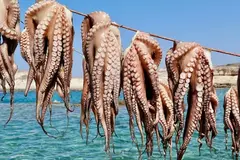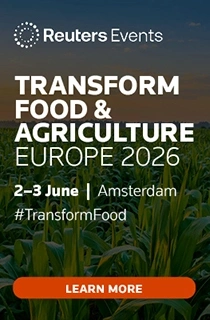
- Industry news
Industry news
- Category news
Category news
- Reports
- Key trends
- Multimedia
- Journal
- Events
- Suppliers
- Home
- Industry news
Industry news
- Category news
Category news
- Reports
- Key trends
- Multimedia
- Events
- Suppliers
Chile targets octopus farming ban in landmark animal welfare bill
Key takeaways
- Chile has introduced a bill to ban octopus farming, aiming to protect marine ecosystems, public health, and animal welfare.
- The proposal follows global warnings about the environmental and ethical risks of intensive octopus aquaculture.
- If the bill is approved, Chile would become the first Latin American country to prohibit octopus farming.

Chile has proposed a groundbreaking bill that could make it the first country in Latin America to ban octopus farming. The legislation aims to protect marine ecosystems, ensure public health, and safeguard food security in coastal communities by prohibiting the intensive farming of the sentient species.
The move comes after a recent report released on World Octopus Day warned of the growing threat of octopus farming on animal welfare, food security, and marine ecosystems. Animal rights groups called on the EU to adopt a coordinated ban, following similar efforts in the US states of California and Washington.
Bill 17913-12 will now move to the Environment and Natural Resources Committee to be discussed. If passed, it would protect octopuses from “inhumane farming practices” and position Chile as a global frontrunner in animal welfare and environmental protection.

“As a country rich in marine biodiversity and coastal communities that depend on healthy oceans, Chile cannot ignore the lessons from other nations where intensive aquaculture has brought serious harm,” says Catalina Lopez, certified aquatic veterinarian and director of the Aquatic Animal Alliance.
“This bill reflects Chile’s commitment to protecting both animals and our marine ecosystems for future generations.”
According to the Aquatic Life Institute (ALI), banning octopus farming is an urgent need as countries like Mexico and Spain explore farming ventures. Expanding octopus farming could have “irreversible” adverse impacts on the environment and public health.
Why ban octopus farming?
ALI is supporting the law along with local organization Fundación Veg, both of which are part of the Aquatic Animal Alliance, a global coalition of over 180 organizations working to improve the welfare of aquatic animals in the food system.
“Chile has a unique opportunity to act in advance and prevent the development of an industry that has already proven globally to be unviable and environmentally unsustainable,” Ignacia Uribe, founder and CEO of Fundación Veg, emphasizes.
It is scientifically proven that octopuses are highly intelligent animals with needs “that cannot be met in captivity,” says Uribe. “Their industrial farming not only poses serious environmental and health risks but also represents an ethical setback that our country cannot allow.”
In August, the Animal Rights and Defense Foundation, Aquatic Animal Alliance, and ALI wrote a letter to the Chilean government to stop investing in octopus farming studies and redirect public funding toward sustainable and ethical scientific initiatives. Eurogroup for Animals, Planet For All, and Compassion in World Farming were some of the other signatories.
The letter states that high levels of sentience and the ability to suffer are some of the key reasons to stop octopus farming. These animals are highly fragile and challenging to keep in captivity, with mortality rates reaching 96.6% in larvae and 52% in adults.
A 2021 review by the London School of Economics and Political Science states that octopuses are highly sentient animals with well-developed nervous systems, allowing them to experience emotions, learning, reasoning, and memory.
There are also no humane slaughter methods for the animals, causing prolonged suffering, notes ALI.
 The landmark proposal seeks to prevent environmental damage and protect public health.
The landmark proposal seeks to prevent environmental damage and protect public health.
Environmental and health risks
ALI highlights that the carnivorous diet required for octopuses strains wild fish populations, exacerbating the pressure on already declining populations and undermining global sustainable development goals.
Additionally, the overuse of antibiotics in aquaculture can lead to the development of drug-resistant bacteria, which may spread to human populations, increasing health risks.
ALI emphasizes that the “time to act and protect the environment is now.” Along with seafood certifiers Royal Society for the Prevention of Cruelty to Animals and Friend of the Sea, it has issued statements prohibiting octopus farming.
These organizations agree that it’s crucial to ban this practice before it starts, recognizing that octopuses’ behavioral needs, sentience, and strict carnivorous diet make it “impossible to guarantee high welfare conditions” in farming.









